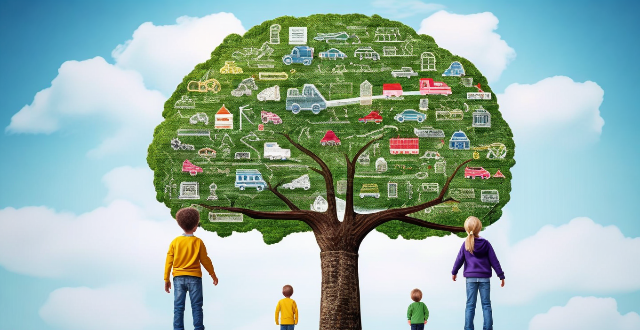Teaching children about climate change is crucial for their future, empowering them to take action and make a difference. It enhances their awareness, critical thinking skills, environmental stewardship, innovation, preparation for future careers, empathy, responsibility, healthy habits, resilience, and interest in science and technology. This education can lead to informed decision-making, problem-solving abilities, responsible behavior towards the environment, and a sense of global citizenship. By teaching children about climate change, we are preparing them to confront one of the most significant challenges facing our planet.

The Benefits of Teaching Children About Climate Change
Teaching children about climate change is an important step in preparing them for the future. It not only helps them understand the world around them but also empowers them to take action and make a difference. Here are some benefits of teaching children about climate change:
1. Enhanced Awareness and Understanding
By teaching children about climate change, we can help them develop a deeper understanding of the environment and its complexities. They learn about the causes and effects of climate change, as well as the potential consequences if left unchecked. This enhanced awareness and understanding can lead to more informed decision-making later in life.
2. Development of Critical Thinking Skills
Discussing climate change with children encourages critical thinking skills. They learn to analyze information, evaluate evidence, and form their own opinions based on facts rather than emotions or misinformation. These skills are essential for navigating complex issues in any field.
3. Promotion of Environmental Stewardship
Educating children about climate change fosters a sense of environmental stewardship. They learn that their actions have an impact on the planet and that they play a role in protecting it. This can lead to a lifetime of responsible behavior towards the environment.
4. Encouragement of Innovation and Problem-Solving
Teaching children about climate change challenges them to think creatively and find solutions to real-world problems. It inspires innovation and problem-solving skills that can be applied in various aspects of their lives.
5. Preparation for Future Careers
As climate change becomes an increasingly pressing issue, there will be a growing need for professionals who understand the subject matter and can contribute to finding solutions. By teaching children about climate change, we are preparing them for future careers in fields such as renewable energy, conservation biology, and environmental policy.
6. Fostering Empathy and Global Citizenship
Learning about climate change helps children develop empathy for those affected by its consequences, both locally and globally. It promotes a sense of global citizenship and encourages them to consider how their actions impact others around the world.
7. Instilling a Sense of Responsibility
Teaching children about climate change instills a sense of responsibility towards the planet and future generations. They learn that they have a duty to protect the environment and ensure that it remains habitable for all species.
8. Promoting Healthy Habits
Many actions that combat climate change, such as reducing waste or using public transportation, also promote healthier lifestyles. By teaching children about these practices, we are encouraging habits that benefit both the environment and their personal well-being.
9. Building Resilience
Understanding climate change helps children build resilience in the face of adversity. They learn that change is inevitable and acquire coping mechanisms to deal with challenging situations.
10. Stimulating Interest in Science and Technology
Climate change is a multidisciplinary subject that touches on various scientific fields, including biology, geology, atmospheric science, and technology. Teaching children about it can stimulate their interest in these subjects and potentially lead them to pursue careers in these areas.
In conclusion, teaching children about climate change offers numerous benefits beyond just increasing their knowledge on the topic. It helps shape responsible, empathetic, and innovative individuals who are prepared to confront one of the most significant challenges facing our planet.